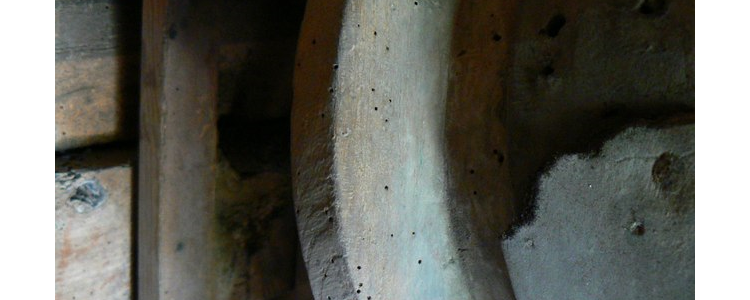Earlier this year, we learned of a scam involving door-to-door fraudsters selling fake woodworm services. As woodworm specialists, these kinds of scams are terribly offensive to us. They prey on innocent people who do not know anything about woodworm or timber rot, and they give the entire woodworm treatment industry a bad name.
You can beat the scammers by learning to identify the tell-tale signs of woodworm. Those signs are hard to replicate in homes where no true infestation exists, so scammers have to use other means. Those other means don't hold up if you know what to look for.
How the Scheme Works
Fraudsters attempting to pull off the woodworm scam choose victims by observing a given neighbourhood. They generally target older homeowners they see as being more vulnerable.
The fraudster will knock on the door claiming to be a tradesperson offering services in the neighbourhood. He/she will attempt to gain entry by telling the homeowner he/she noticed something in the roof timbers that suggest woodworm or timber rot.
Once inside, the fraudster will purport to do a timber inspection in whatever area of the home he/she allegedly viewed from the street. He/she will produce live maggots as evidence of a woodworm problem. The unsuspecting homeowner, faced with a potentially serious timber problem, will then be encouraged to pay hundreds or even thousands of pounds to have the scammer take care of it. The scammer will leave with a promise to return later, but never show his/her face again.
Woodworm Basics to Beat Scammers
It only takes a little bit of knowledge to protect yourself from the woodworm scam. First, understand that woodworm specialists are not going to knock on your door and claim to have noticed timber damage from the street. It doesn't work that way. We have enough business to keep us going. And even if we didn't, identifying woodworm from the street in nearly impossible.
Second, fraudsters produce live maggots as evidence of a woodworm problem because they know unsuspecting customers associate woodworm with actual worms. But the creature responsible for woodworm is actually a wood boring beetle. The beetle bores deep into timbers where it can lay its eggs. The resulting larva can spend years eating away at the wood until it matures into an adult beetle.
You'll never look at a piece of timber infested with woodworm and find live maggots squirming around. All you'll see are the boreholes and perhaps an occasional beetle emerging from one.
Lastly, scammers almost always use high-pressure tactics in order to make a quick 'sale' and get out as quickly as possible. Anyone claiming to be a woodworm specialist is not going to pressure you into making a decision with the next 5 minutes. If you're experiencing high-pressure sales, there's a strong likelihood you're being scammed.
If you suspect a woodworm problem, we invite you to contact us. Thames Valley Timber Treatment is a woodworm specialist with more than 25 years’ experience.

